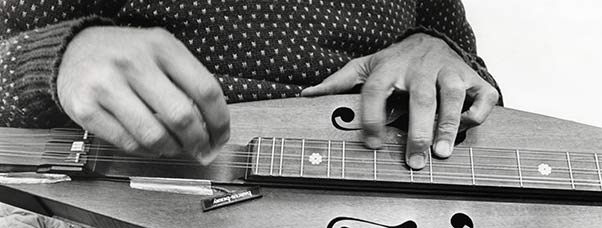Cistern 138 in D
Author: Robert Force
Date/Studio: 2013 Synergy, Port Townsend, WA
Engineer: Neville Pearsall
Producer: Robert Force
Original Release: Did You (BSR151)
Current Release: Did You (BSR151)
Recorded in 2013 in Port Townsend, this tune off of the Did You CD was sort of an add-on. These days when you publish an album there is no “price per song.” I wanted to show folks how it is I use the “dulcimer roll” to enhance my tunes, a simple 1-3-2-1 picking pattern that repeats over and over. No actual melody is used in the tune. So I added it.

In the piece dynamics are caused by loudness and softness and the accenting of course of strings or another. I figured that people these days just download what they want to hear and build their personal song lists from that. Used to be you were stuck with whatever order the album was in. No longer. This was mostly to be a tool for illustrating that technique.
There's another reason. Years ago when In Search of the Wild Dulcimer came out it received a major, four-page review in the then very popular magazine, The New Age Journal. The reviewer, Molly Scott, praised the illustrations, the clarity, the attention to detail and the authors. She then stated her one disappointment, there was no mention of the use of the dulcimer in kirtan as an accompaniment to meditation and worship.
I frequently, then as now, use the dulcimer in reflection. I can't really claim I meditate with it-- not like most people think about it. I walk around and play this 1-3-2-1 pattern with no melody. I walk. I look at the world. I let a part of my mind just go awash in the do-sol-do (d-A-D) drone of the dulcimer. Maybe that's what she meant. My friend Don Berry, lecturing on the sound of droning at KG1, said that the root-fifth-octave wave creates an alpha pattern that the brain likes and says, “hey give me more!” That has been my experience.
A newspaper reviewer of the CD recently told me he really like the Leo Kottke-esc feel of the Cistern tune. Good company to be in. I played-- live of course-- for not quite seven minutes. If it were to be a time for reflection, I wanted it to be short enough to have the time to do so and long enough for it to be effective as a calming, centering device. In fact the original name of the tune was Kirtan in D.
My friend and audio engineer, Neville Pearsall, suggested we use the long echo of the water cistern at Fort Worden State Park where his studio is located. He had recorded people there in the past and had “sampled” the delay so he could use it in other recordings. Ah, the digital age. Sure! So, what you hear is a recreation of me being in an underground, concrete, oblong-shaped reservoir. I play into the echo and let it work with the pace of the tune.
That pace is 138 beats per minute. The metronome is my internal clock. The key is D.
